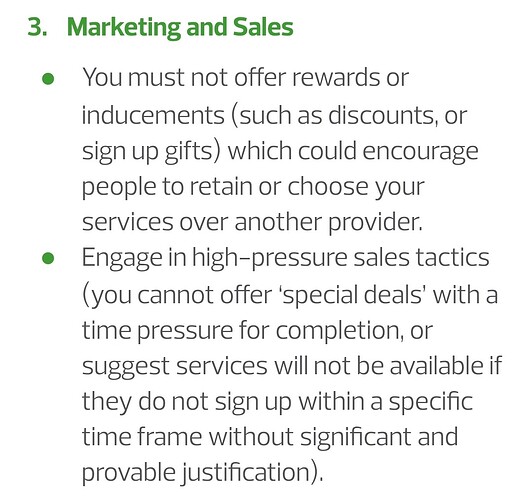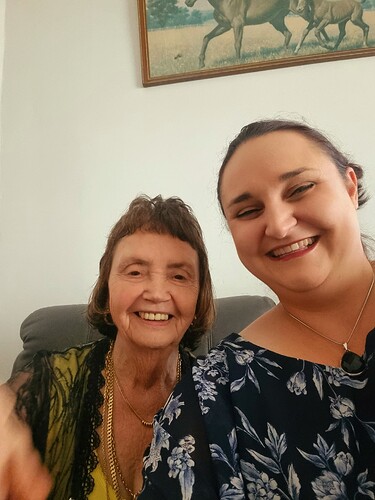I think this is an important topic to tackle considering the results of the recent poll Sharp practices.
Coercive tactics are used to aggressively encourage and sometimes even force someone to do something that they did not or do not wish to do. They are considered a sharp practice by NDIS and they are against the code of conduct. They can look slightly different depending on the situation and what the person doing the coercing is trying to achieve. As we can see from the poll, a number of you have experienced pressure from providers to give more hours.
What I am hoping for today is to give solid examples and also some tools you can use to ensure that you are not being taken advantage of.
What does coercion look like?
These are all examples I have either seen or had reported to me. Some of these may bear a striking similarity to a case you are facing/have faced.
A participant started with a new provider after negotiating and agreeing to 2 hours per day, 2 days per week in a service agreement. Two weeks into working with them, the provider has suddenly contacted the participant stating that they need a minimum 3 hour shift 3 times a week otherwise they are going to drop them as a client and no longer service them. The participant is vulnerable a needs supports.
This is probably one of the worst and most overt types of coercion. The provider knows the participant is vulnerable and is at a disadvantage, but this kind of behaviour is a breach of both the providers responsibility to participants in the code of conduct and the NDIS and its standing on sharp practices. I would be asking this provider to send this to you in writing including a date of when supports will be withheld from if you don’t make a decision. I would then be forwarding that email to the commission and looking for a new provider.
A participant decided to go on a 3 week holiday with their family and cancelled their supports for the duration as they would not be home to use them. The provider called upset because of the impact the loss of income would have on them, gave emotive descriptions of the impacts and then tried to convince the participant to allow them to charge the hours still even though services were not provided.
I think the participant who described this to me used the phrase “holy boundaries batman”. And that is what this is. It is a breach of professional boundaries. Some sole traders in particular forget that this is a business that THEY are running. Participants are not responsible for their upkeep. Someone asked me once how long participants are allowed to cancel services for and I think my answer was as long as they want, ranging from one day to eternity. Your funding is yours to use to support you, not to support a workers income. I would be reminding them of that fact and, I don’t want to sound heartless here but, you should be letting them know that this conversation makes you uncomfortable and is not the level of professional conduct you expect of a worker. Some workers forget themselves for a minute and reminding them brings them back to reality. Others may decide you are not the client for them and that might be a good thing for you.
My support worker keeps trying to encourage me to take long outings with them over the hours I allocated for the day. At first I thought it was ok because I did want to get out and try new things once in a while, but it is becoming an every visit thing. I have also said to them several times that anything more than 3 hours and I am exhausted. This often causes me to have to cancel other supports in the week due to fatigue or to correct my plan budget so I do not run out of funding. They are not listening to me.
Sometimes you are going to need to put your foot down and hard. Getting the energy up to do this is half the battle. Here are some lines you can try if what you have been saying has not worked out so far. It is important to use the correct language because if this ends up becoming a complaint, NDIA responds better hearing their own rhetoric:
-
Due to the nature of my disability, I am not able to be out of my house past my set time. If you are unable to accommodate this to ensure my safety, I may need to look for someone better suited.
-
While I do not mind that you are making suggestions, I would like future options to have my financial limitations and disability taken into account as I do not feel you are tailoring your services to my needs.
-
My NDIS plan has only allocated X number of hours per week for outings. If we keep going over the hours that I have requested, I will have to either cancel services for the remainder of the plan when the funds run out or instead I may need to reduce your visits to once a fortnight to make sure I stay on track. I would appreciate it if you could keep this in mind when making suggestions.
Now these examples sound harsh but sometimes you need a little bit of harsh to pull people in line with your needs. Serving your disability needs is why they are there to begin with.
I asked my support worker to organise tickets to a show for myself and them using my companion card and credit card. They ended up purchasing the VIP experience which costs a lot more and will have us using more of my hours than I budgeted for. They are very excitedly now telling people about it. I want to say something, but I feel bad because of how excited they seem to be.
I wasn’t sure where to begin with this one. They used the credit card in a way that they did not have permission to, they did not ask the participant whether the increase in time was ok, they are breaching privacy and safety by openly telling people about the participants planned outing… I understand the participants guilt in this scenario because most participants like their supports when they find ones they feel are good. But sometimes good is just better than the ones who were worse, not actually good. Services should be happening the way you requested and expected them to within reason. Sometimes things don’t go to plan, but this and any options should be discussed with you so that you maintain choice and control. In this instance I would be explaining that this is not what you asked them to book. You may still want to go and enjoy it, but it needs to be made clear that this isn’t to happen again. In this instance though, the participant ended up cancelling the service and had the support worker reimburse them the cost of the tickets as they felt violated once they really thought about it. The support worker did try to argue about it, but their only defense was that they thought the participant would like it better. It was not their choice to make or their money to spend.
I cancelled a shift because I was sick and the support worker abused me over the phone.
AHHHH-STRAIGHTTOTHECOMMISSION. Ahem, sorry, needed to sneeze. This is not appropriate and using intimidation may not work on the day, but would make you hesitate to cancel again in future when needed to avoid the confrontation. That is where the coercion comes in. I would avoid future confrontation by cancelling all services and finding a new support worker.
My support worker turned up to do domestic assistance today. When she arrived she was limping and told me she had really hurt herself on the weekend. She didn’t think she would get through everything but she would do her best. She ended up not cleaning my bathrooms or kitchen which I really needed, but I felt bad and didn’t say anything. She offered to stay and do a couple of extra hours to get things done, I just did not have the funding. But now I am stuck because I wont get another clean until next week.
This is probably one of the more subtle types of coercion. Support workers are responsible for ensuring they are fit for work. Whether that be physically, emotionally or legally. Turning up and using emotive excuses and doing a sub par job is still a sharp practice and a breach of contract. While you cannot do much on the day I would be asking for an amendment to my service agreement to ensure that they are not turning up when unfit for duty in future. The other issue is they have left you in a potentially unsafe or unhygienic environment. There is a reason you are getting regular house cleaning.
I tried to hire a worker but they said they have a 3 hour minimum. I am only funded for 2 hours. They refused to negotiate.
This one is an easier one. Find a provider willing to negotiate.
I wanted to book a service and I had set aside 4 hours. The provider is saying they wont book it for anything less than 6 hours because they wont have enough time. Other providers have done it for me before no problem.
This one can be a tricky one to tell if you are being coerced or if they are being genuine. It really depends on the service. I know for certain activities, some providers under quoted and have ended up in financial ruin in the past. I also know some providers over estimate to cover certain costs. If you have a provider you want to go with, but they are quoting higher hours for an activity than you requested, get “quotes” from other providers on how many hours they would be required to charge for those services. You can then compare. If the quotes are all similar it may just be about viability. If others are significantly higher, you might need to reassess how much time is needed for the activity. If they are significantly lower you can use them to negotiate with the provider or simply choose a provider with a lower quote.
My provider keeps trying to offer me deals, like lower rates if I get more hours. The problem is it still puts me over my plan budget and sometimes they only offer the deals during set periods of the day that are not convenient for me.
Sales pitches, limited time offers, pushy tactics and discounts are all considered sharp practices. These are not allowed. I would be avoiding this provider because they have not done their due diligence with the code of conduct.
These were just some examples. If you have examples I haven’t mentioned that you would like to discuss or if you are trying to work out if something is coercive or not, feel free to mention it in the comments.



